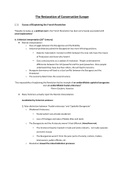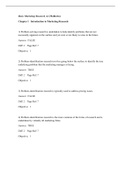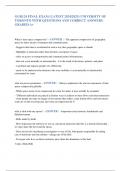Samenvatting
Complete SUMMARY of Chpaters 3 and 4 of 'European History' (Ba1 Social Sciences, Prof. Dr. Musliu)
- Vak
- European History
- Instelling
- Vrije Universiteit Brussel (VUB)
These files are complete, organized and simplified smmaries of chapters 3 and 4 of the extensive material of the course of 'European History' taught by Prof. Dr. Musliu. The two chapters summarized here are entitled: "The Restoration of Conservative Europe" and "Peace & War, International Relations...
[Meer zien]












